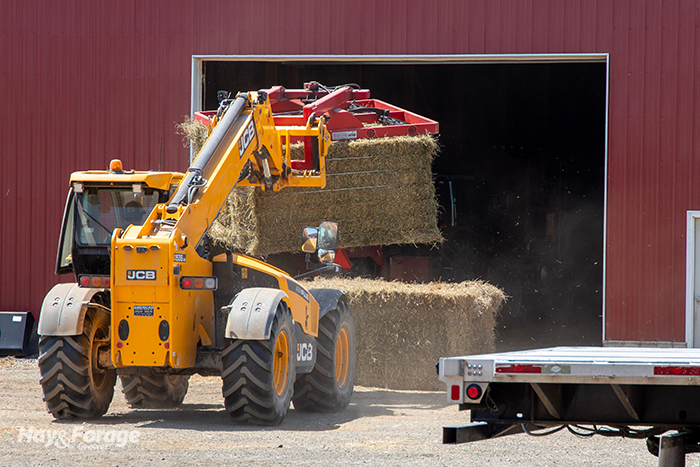
As the hay cycle transitions from making to selling, be reminded that most people are honest and well intentioned, but just one nefarious hay buyer can make for a really bad day.
KXII, a television station based in Sherman, Texas, recently reported on a Marietta, Okla., hay grower who was left standing with a bad $8,000 check after the thief drove his white semitruck and loaded trailer away.
“I hope he gets caught,” said rancher Nick Blayney during his interview with the television station, “but my main goal is to make people aware of him.” Blayney buys and sells hay through his farm business, The Hay Barn. Typically, hay customers come to his ranch to pay for the hay and leave with a loaded truck.
A customer from Texas arrived at his ranch a few weeks ago and wanted to purchase a load of hay. “He was just like you and me, just a normal guy,” Blayney explained to the reporter. “He paid with a check, and it ended up being an actual fake check. You rely on that money to turn it, to keep trying to grow your business. It hurt pretty good.”
Blayney reported the incident to law enforcement, but charges have not yet been filed. Special Ranger Randolph McGee is investigating the case with the Texas and Southwestern Cattle Raisers Association. “I did see where this particular individual has got a history of that,” the ranger said. “Everybody just needs to be mindful of who you’re doing business with, and when you get a check from someone, go get that check vetted before the person leaves with your product.”
“I think I’ve learned my lesson,” Blayney said. He plans to do business differently moving forward, but he wants other ranchers to be aware of the situation. The dishonest individual is going from Texas to Oklahoma and purchasing hay with bad checks.
Not the first time
Blaney is not the first or last hay seller to get “hung” with a bad check. Whenever the topic is broached on an internet forum or social media site, the replies of personal experiences abound.
When selling hay, the producer is often put in the unenviable position of an unsecured creditor. This is always a position of risk.
The best-case scenario after receiving a bad check is that an honest mistake was made and the problem is quickly resolved. Unfortunately, that doesn’t always happen. Taking legal action may be an option, but it’s one that most producers want to avoid as costs can mount to more than the value of the claim.
The best offense against bad checks is a good defense. This can encompass a variety of possible strategies.
Some hay producers who have been burned by nonpayment on several occasions have gone to the extreme of only dealing with buyers whom they know and trust. This, however, is not always possible.
The means by which hay sellers operate to ensure payment is varied. Some deal only in cash, at least with those buyers whom they don’t know. Hay is not loaded (or unloaded) until payment is received. In cases of payment by check, this means the check must clear the bank or be vetted before the hay is loaded at the farm or delivered.
Some hay sellers have turned to technology and utilize a credit card reader that attaches to their tablet or cellphone. This puts the onus of collection on the credit card company but comes with a user fee that may or may not be passed on to the hay buyer.
New money transfer apps such as Venmo or Zelle offer other alternatives to receive payment for hay.
Blaney’s story can be followed on kxii.com.

